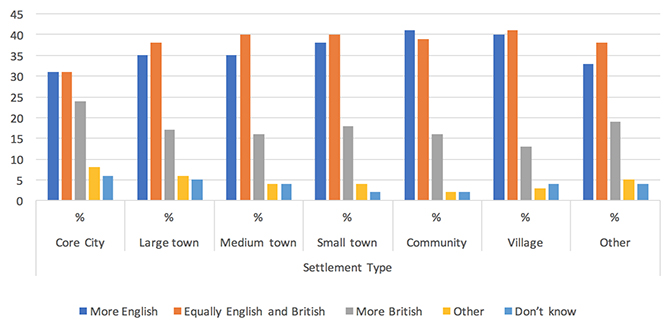Closer inspection of the controversy surrounding the dispensing of raw sewage into UK waterways by private water companies reveals multiple profound issues of mismanagement and lack of oversight. Geoff Meeks looks at how the regulatory structures and processes designed for the accounting profession could point to an alternative model that could avoid such failures in the future.
The Financial Times’s Lex column described Thames Water, the large English water company, as “a case study in some of the worst aspects of private equity-style financial engineering”. And the English water and sewage industry as a whole provides a case study of market failure on a grand scale. Apart from owners enriched by the failures, few observers doubt that new measures are necessary to bring the industry under control, whether in private or in public hands. Here we find some hints on how to regulate a sector which has lost its way – hints coming from the unlikely example of financial accounting.
Market failure in the English water and sewage industry
The industry currently provides a grim catalogue of sources of market failure. The regional monopolies which make up the industry have been allowed by the regulator to charge inflated prices – resulting at times in returns on equity twice the appropriate rate expected for a utility. Externalities are notorious , notably the widespread release, far beyond prescribed limits, of raw sewage into rivers and onto beaches. Corrective action over these externalities has been impeded by asymmetric information – polluters have been left to self-report pollution events and have grossly under-reported them.
Polluters have been left to self-report pollution events and have grossly under-reported them.
Moral hazard has jeopardised the companies’ balance sheets: rapid expansion of tax-avoiding borrowing linked to massive extraction of cash by the equity-holders. This strategy has left Thames Water, for example, “on the brink” of failure, which could seriously harm stakeholders ranging from employees to creditors to customers. But the strategy has released huge sums for owners: since the 1990s, the 10 biggest water and sewage monopolies borrowed £53 billion though “much of that has been used not for new investment but to [help] pay £72 billion in dividends” and their total capital expenditure had “declined by 15 per cent since the 1990s”. The squeeze on investment in the system is associated not just with damaging pollution levels but also with leakage rates from the pipes delivering clean water standing at four times those in Germany.
Market failure in financial accounting in 1990
Just as the financial engineers among, or advising, the owners of water companies (often private equity) have been contriving to secure stellar gains at the expense of operating efficiency and of other stakeholders, so also the merchant banks and their legal advisers were making hay in the 1980s by circumventing accounting rules to inflate profits and hide debt – seriously misleading financial markets.
The (London) Times wrote that by 1990: “[UK] Company accounts were a laughing stock and the profession was at bay.” Famous analyst and whistleblower Terry Smith argued: “…much of the apparent growth in profits which had occurred in the 1980s was the result of accounting sleight of hand rather than genuine economic growth…”.
Investors were misled and lost money. But, of course, the costs of grossly misleading information go way beyond such private losses. Nobel Laureate Akerlof points out:
“The presence of people in the market who are willing to offer inferior goods tends to drive the market out of existence. …It is this possibility that represents the major costs of dishonesty –for dishonest dealings tend to drive honest dealings out of the market.”
This applies to markets in general; in the case of financial markets, investors faced by severe information asymmetry can be expected to shun the markets for shares and for borrowing, depriving the economy of risk-sharing, liquidity and monitoring benefits. Short-term private gains were made from the accounting manipulation, but brought the industry into disrepute. Likewise abuses such as massive unreported discharge of raw sewage to save treatment costs and boost profits, which may lead to the industry being nationalised. In both cases, the challenge for regulators has been to shift the balance in favour of the long-term collective interests of the “industry”.
Reforms in financial accounting
In 1990, a new regulatory body, the Accounting Standards Board (ASB), was set up. While it would be foolish to suggest that a model developed for a very different sector in a different era could just be transplanted into the water industry, could it be that the general approaches developed then to restore order are worth study in this different context? The Times’ Sargeant described them as “a rare success in state-sponsored, self-led regulation”. They are discussed in a new book by three former ASB 1990s regulators.
The unusual “state-sponsored, self-led” structure brought together distinguished experts with different roles in the financial markets: issuers of accounts (finance directors), scrutineers of the accounts (auditors) and users of the accounts (analysts, representing shareholders and lenders).
The resulting Board aimed to persuade regulatees of the (long-term collective) benefits of losing freedoms or options which had been bringing short-term private benefits at others’ expense. For example, in the fraught area of accounting for M&A (mergers and acquisitions), the FT’s Lex column commented that the ASB’s proposals were “likely to meet with widespread approval. This is despite the fact that companies’ favoured … [method] is set to be outlawed… a triumph of diplomacy as well as intellectual ingenuity.”
80 per cent of corporates objected to the new rules when they were first proposed. After the Board’s efforts to persuade, 59 per cent supported them. The Board’s efforts included discussion papers inviting comment, a lengthy public hearing, debate in the broadsheet press, field testing of proposals in major companies, and tireless informal engagement with regulatees.
Part of the motivation for such consultation processes was that compliance with the rules was much more likely if the regulatees were on side”. Should individual regulatees not come on side, the ASB regime had another innovation – the Review Panel – comprising highly respected experts who investigated behaviour which contravened the spirit of the standards even if it complied with the letter of the law. The Panel could demand changes. Regulatees could challenge the Panel’s findings in court, but never dared. In some cases, business leaders lost their jobs following adverse Panel findings.
Transparency is sorely needed in the water industry, where asymmetric information has been an enduring feature
The watchword of the ASB’s work was transparency: giving users of accounts all the material information they need to make their decisions and making the information as clear and accessible as possible. Such transparency is sorely needed in the water industry, where asymmetric information has been an enduring feature (as in the self-reporting and massive under-reporting of pollution); and where it is sometimes hard to trace the frequently-changing ultimate ownership and control of the water companies or to follow the financial flows to the owners.
Success of the reforms
Terry Smith, arch critic of the previous regime concluded: “There is little doubt that the ASB has achieved a great deal in making UK accounting more rigorous”. The ASB reforms earned plaudits at home and abroad: the former chairman of FASB, its US counterpart, wrote about one set of ASB reforms: “…they represent a model that the US board should emulate…”
And the growth of inward portfolio investment in UK equities as the ASB bore down on dishonesty – 20-fold between 1994 and 2000 – is certainly consistent with Akerlof’s linkage of the size of the market to the reliability of information.
The importance of personnel
Nationalisation of the water industry has been proposed as a solution, and could mitigate some current problems, but many of the challenges of monitoring and influencing performance arise whether the activity is privately or publicly owned. Whoever owns the industry, comparison of these two sectors suggests the importance of public-spirited regulators. At the ASB, Chairman Tweedie could no doubt have had an easier life if he had been more accommodating to the wealthy and powerful “creative” accountants. He and his colleagues could have eased their way to a fortune by moving through the revolving door from “gamekeeper” to “poacher”. But Tweedie was not seduced: Terry Smith wrote approvingly of him attacking misleading accounting “with an almost evangelical zeal”, and his fellow former regulators Cook and Whittington were similarly determined. Tweedie saw no disgrace in, and included in the new book, one newspaper’s description of him as ‘The Most Hated Accountant in Britain’. By contrast, in the water industry we’ve seen the top regulator taking the revolving door to head a regulated water business.
All articles posted on this blog give the views of the author(s), and not the position of LSE British Politics and Policy, nor of the London School of Economics and Political Science.
Image credit: Shutterstock







